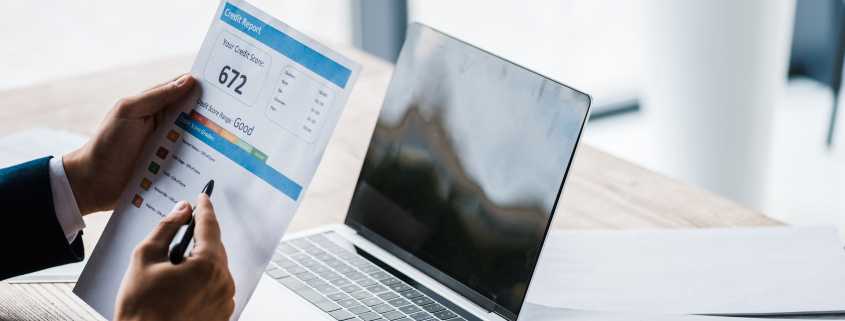Solvency
Solvency and Scoring: effective tools to prevent non-payment
The study of the solvency of its suppliers or commercial partners and prospects allows to prevent unpaid invoices and is a highly recommended tool.
In order to carry out a credit study, you have the possibility to call upon external service providers who will deliver a complete financial report and a credit risk assessment. The credit risk is a data that must be assiduously monitored. This will allow you to estimate the creditworthiness of companies, your main suppliers or potential and strategic partners
Thus, the objective of the company solvency study is to prevent any risk of non-payment and especially to validate the good financial health of those with whom you are in commercial relationship. It is not without saying that with the health crisis that we all go through, the financial health of companies is challenged and put to the test. It is better to take precautions and prevent unpaid bills than to collect them!
Financial solvency: Why and how to check it?
Thus, the solvency of a company is undoubtedly the information most prized by banks and companies. Solvency is the capacity of a person or a company to have sufficient means to pay its debts in the short, medium and long term. In other words, it is the ability of the company to meet its commitments, for a company it is to understand if the company can, with its assets, meet its liabilities.
By estimating the solvency, one evaluates its capacity to honor its debts and conversely, its risk of insolvency.
Analyzing corporate creditworthiness: instructions for use
Solvency can be measured by several indicators from financial analysis:
- Total debt / Total balance sheet : If the ratio obtained is higher than 1, then the company will be considered in serious difficulty or bankruptcy.
- Assets - Liabilities : If the result is positive, the client is solvent.
- CAF = Net debt / EBITDA (Gross Operating Income): This ratio allows to make an estimation on the capacity of repayment of the debts.
- EBITDA / Loan and lease payments: The higher the result, the more the company is able to increase its debts and resort to borrowing. This is a rate classically used by credit organizations.
- Revenue growth, industry data, data on company payment habits.
- Compliance with the obligation to publish accounts
Therefore, these rates are calculated from the balance sheet and income statement of the companies. Commercial enterprises, with the exception of micro-entrepreneurs and auto-entrepreneurs, are obliged to publish their balance sheet and profit and loss account to the public.
In conclusion, this financial information is sufficient to measure the financial risk of the companies and to establish the credit report and the company scoring .
What is a credit report and scoring?
The credit report
A credit report includes credit history and helps limit credit risk by identifying signs of payment incidents. It contains the following elements:
- Payment habits
- Collective proceedings
- Legal information
- The DGCCRF sanctions[1] (it is the only one able to publish administrative fines due to late payment).
- Credit score determined by financial experts
Scoring
Scoring is used in the context of credit insurance to determine the level of risk presented by a company.
The score is then used to decide to cover the payment risk, to determine its cost and to help in case of debt collection in order to be compensated in case of non-payment. For companies, the elements to give a score are: sectoral payment behaviors, age, sector of activity, profit margin and turnover.
The credit report and scoring are prepared by external service providers who are experts in the field of corporate valuation and creditworthiness.
What you need to remember:
Solvency is a key piece of information that allows us to know if a company, a supplier or a partner is able to pay its debts.
To measure it, many indicators are used:
- Legal information
- Balance sheet items
- Profitability indicators
- Solvency indicators
You want to evaluate the creditworthiness of a customer, partner or supplier and obtain a Scoring?
Visit https://legalcity.fr/rapport-de-solvabilite/.
Our online collection platform puts the protection of your business at the heart of its solution.
That is why LegalCity relieves your company of the legal and administrative problems related to debt collection. Payment incidents can be anticipated and are no longer a fatality.
LegalCity is here to help you prevent unpaid invoices by providing you with a solvency and company scoring service developed in collaboration with CREDIT SAFE that will allow you to know the financial solidity before entering into a contract.
[1] https://www.economie.gouv.fr/dgccrf/sanctions-delais-paiement










Leave a comment
Join the discussion?Feel free to contribute!